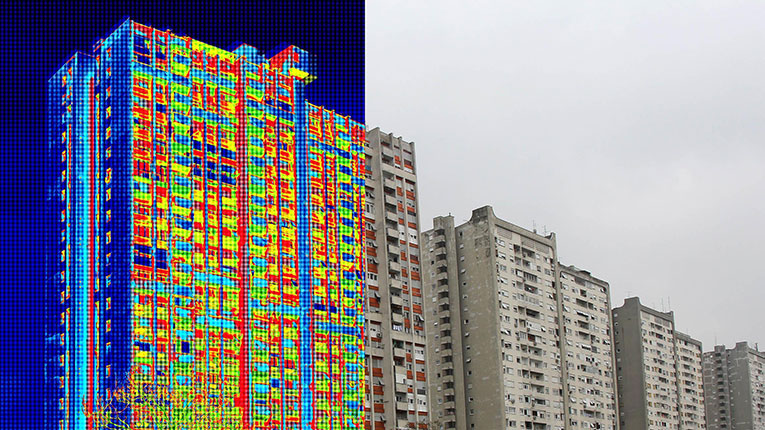The energy renovation rate should triple in order for Romania to align itself with the terms of the European directive on climate and energy objectives, the Association for the Promotion of Energy Efficiency in Buildings (ROENEF) said on Monday.
According to the quoted source, the construction sector represents approximately 8.2% of the EU GDP, respectively 10% of the total employment.
“The construction sector has a central role in achieving the climate and energy objectives set by the EU EPBD Directive and approved by the European Parliament in March this year, with deadlines for 2030 and 2050 respectively. The construction sector represents approximately 8.2% of the EU GDP , respectively 10% of the total employment, and in terms of the energy renovation rate, this should triple in order for Romania to align itself with the terms of the directive”, shows a ROENEF press release quoted by Agerpres.
The association welcomed the adoption of the report on the energy performance of buildings (EPBD) by the European Parliament and specified that it supports all the amendments adopted on March 14, 2023. The directive provides for the establishment of an appropriate regulatory, financial and indicative framework to support the renovation of buildings, the introduction of standards minimum energy performance certificates (MEPS), an improved energy performance certificate (EPC) scheme and the implementation of the zero emission building standard at an accelerated pace.
The representatives of the association draw attention to the importance of the efficient renovation of the entire stock of buildings on the surface of the EU, including Romania, renovation that falls under the direct influence of the players in the field of construction.
“To achieve our climate and energy goals, the energy renovation rate should triple and aim to transform the building stock into buildings with almost zero energy consumption, including in Romania. Let’s not forget the benefits in terms of quality of life, indirect savings, i.e. jobs produced by renovation. For every 1 million euros invested in energy renovation of buildings, 18 jobs are created on average in the EU. Efficient renovation of office buildings increases productivity by approximately 12%, which leading to a potential benefit of around €500 billion per year for the economy. Moreover, efficient hospital renovation reduces hospitalizations by 11%, producing potential savings of around €45 billion per year for the healthcare sector at EU level,” said Mihai Moia, executive director of the ROENEF Association.
According to the ROENEF representative, Romania should focus on essential aspects, such as establishing a clear roadmap for improving the energy performance of the existing building stock, developing digital technologies to measure the exact energy performance of the building stock, measuring energy consumption for heating and cooling in the transition to decarbonated buildings. Another important measure for our country would be the implementation of private and public one-stop shops to offer personalized advice, but also the alignment with the action to reduce the energy performance classes (EPC) and Class G to 15% of the building stock in the member states.
The Association for the Promotion of Energy Efficiency in Buildings – ROENEF represents a non-profit, apolitical association formed by multinational companies such as Saint-Gobain, Rockwool, Knauf Insulation, Signify, Danfoss, VELUX Romania, Alukonigstahl, URSA, SOMFY, Schneider Electric, ALUPROF, DAIKIN and PERI.
